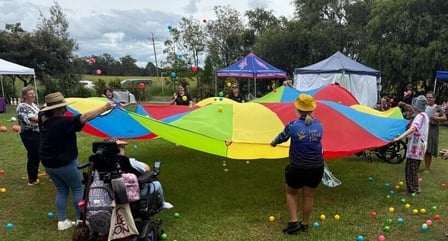Since 2021, CASPA, in partnership with Territory Families Housing and Communities, has been delivering Intensive Therapeutic Residential Care (ITRC) to children and young people in the Northern Territory. This initiative is an example of our commitment to creating brighter futures for young people through providing stability, and opportunity.
Nathan Baunach, CASPA’s Executive Director in the Northern Territory, explains that the program is about more than providing a safe place. It’s about paving the way for lasting change.
“We understand that children and young people in ITRC should be on a path to transition. Our goal is to help rebuild the connections needed for safe reunification with their families whenever possible. When that’s not achievable, we work to prepare and advocate for them as they transition into adulthood,” he said.
The ITRC program is designed for children and young people who have experienced disrupted home environments and lack safe and stable care. CASPA’s therapeutic framework is woven into every aspect of the program, ensuring young people feel secure, supported, and valued.
A cornerstone of the program’s success lies in the dedication of CASPA’s team. “In the Northern Territory, we have more than 200 passionate staff members,” said Nathan. “Our focus on staff recruitment and retention means the young people in our care are supported by a consistent and trusted team.”
This continuity is an important part of our approach, which is grounded in evidence-based practices and innovative solutions. CASPA’s Chief Executive Officer, Naarah Rodwell, emphasises the importance of preparing young people for life beyond care.
“When children leave residential care, they often face challenges around housing and employment. Their path to independence can feel overwhelming,” Naarah said.
The CASPA Foundation, our partner organisation, addresses these challenges head on with programs such as Hammers 4 Hope and Lawyers 4 Hope. These programs not only offer practical support to young people transitioning out of care but also create employment opportunities while sustaining the foundation’s services.
The impact is clear. Terence, a young man who left ITRC care after turning 18, gained work experience through Hammers 4 Hope. Today, he’s pursuing an apprenticeship and using his skills to work on residential and commercial projects, including CASPA’s own facilities. Another young person found success through CASPA’s mentor program, securing a rental property, completing a Certificate IV in Hospitality, and becoming a kitchen manager at a local café.
Stories like these are what drive our team and reinforce the importance of a therapeutic approach. CASPA’s recently established research department, which collaborates with universities and offers work placements for master’s students, ensures these methods remain rooted in evidence and best practice.
Since launching ITRC in the Northern Territory, CASPA has seen a reduction in incidents like property damage and aggressive behaviours, as well as an increase in family reunifications. “Every time we see a child reunite with their family or a young person thrive in their next chapter, it reminds us why we do what we do,” said Nathan.
Naarah shares a similar sentiment. “Our ultimate goal is to help children find their way back to family. The best outcome would be that one day, we're out of a job! That’s what we’re working toward.”







